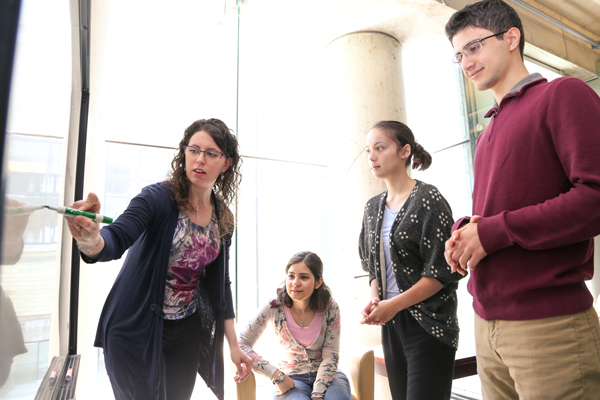U of T Engineering’s newest research institute answers a challenging question: how should we prepare the next generation of engineering leaders for the world they will face in 2050?
The Institute for Studies in Transdisciplinary Engineering Education and Practice (ISTEP) was approved by the University’s Governing Council earlier this month, and will begin operations July 1. ISTEP brings together the strengths of several U of T Engineering programs aimed at developing competencies such as leadership, multidisciplinary design and communication among students. It will also provide an academic home for leading experts in engineering education, curricular design and active learning from across the Faculty and beyond.
“We can’t predict the future any more than we could have predicted the ways that mobile computing, social media and artificial intelligence are impacting our world today,” says Professor Greg Evans (ChemE), who will serve as the interim director of ISTEP. “But we do have pretty good ideas about what abilities our graduates will need to succeed and lead in a rapidly changing world.”
Evans says that the engineering education community has recognized the importance of qualities such as creativity, professionalism, ethical conduct, effective communication, life-long learning and systems thinking among its graduates. ISTEP will advance research into the most effective ways to foster these qualities in engineering students, and catalyze the translation that knowledge into practical learning experiences.
The first institute of its kind in Canada, ISTEP draws on a long history of innovation in engineering education at U of T Engineering. It incorporates the Engineering Communication Program, which for more than 20 years has been a hub for teaching and research in professional communication. The Institute for Leadership Education in Engineering (ILead) prepares students to maximize their impact through transformative learning experience, both inside and outside the classroom. The undergraduate-level Engineering Business Minor and the graduate-level Collaborative Specialization in Engineering Education (EngEd) will also become part of ISTEP.
The new institute will also leverage the world-leading facilities available in the Myhal Centre for Engineering Innovation & Entrepreneurship, the Faculty’s newest building, which officially opened in April. Its technology enhanced active learning (TEAL) spaces are designed to facilitate engagement and two-way communication between professors and students. The Myhal Centre also contains design rooms and fabrication facilities that can be used to create prototypes, either within courses or as part of co-curricular programming.
“In order to achieve their potential, our graduates must be prepared to leverage their technical expertise and strong disciplinary foundations through a growing suite of transdisciplinary competencies,” says Evans. “They will also need to be trained as lifelong learners so as to thrive in the emerging learning economy. ISTEP will ensure that our efforts to instill these values are evidence-based, engaging and effective.”




